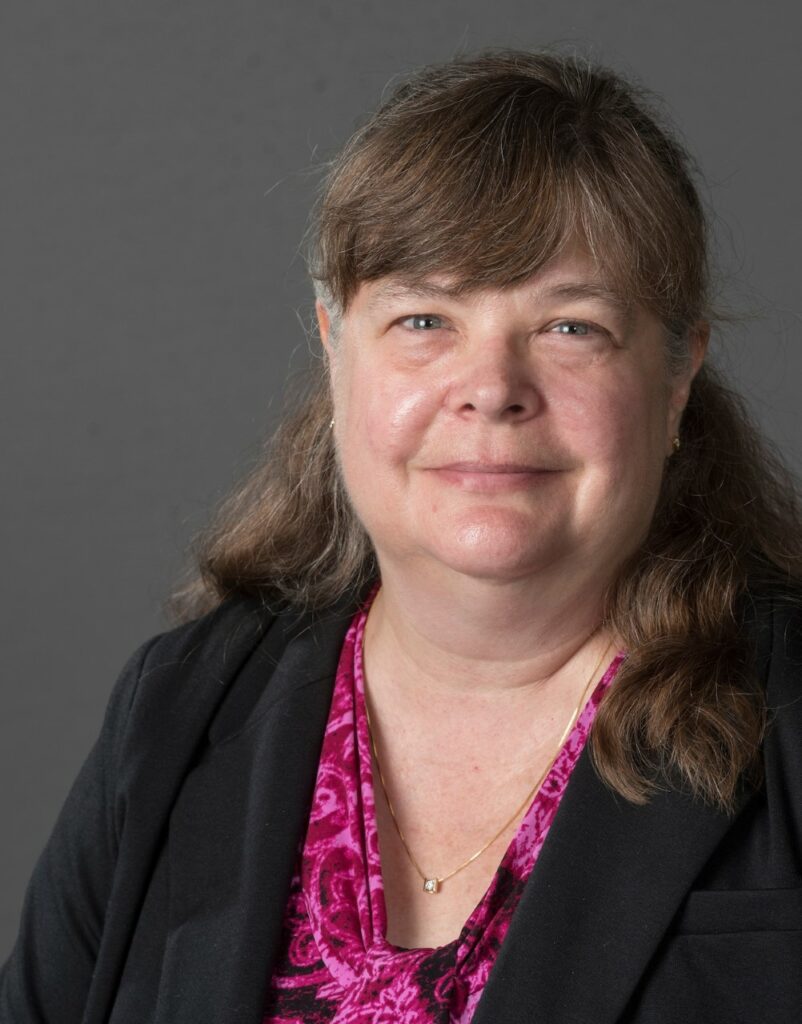Congratulations to Deborah Lauseng, who is the initial HSLI Member of the Quarter! Her involvement in HSLI includes serving on the Conference Planning Committee. Please see below for her responses to some questions, ranging from her academic background and her time working at the University of Michigan’s Taubman Health Sciences Library, to who her favorite fictional librarians are.

How did you first become a member of HSLI, and what do you value most about your involvement in the organization?
My first exposure to HSLI was during the 2017 “The Times are Changing” conference in Bloomington, IL. I encountered an active group of health sciences librarians seeking to expand their understanding of emerging technologies, conducting systematic reviews, and exploring infographics. Though my membership on the annual conference planning committee, I have valued the chance to contribute to the new learning opportunities for all HSLI members.
When did you decide to pursue a career in librarianship, and how have you applied your undergraduate degree in biology and sociology?
After working in my college library as a student assistant, my boss at the time recommended me for her position overseeing the closed stacks “periodicals department.” Once hired, I was exposed to the bigger picture of librarianship through my librarian co-workers, especially one colleague who started library school ahead of me. When I applied to library school, specifically for the medical librarian specialty, I drew upon my biology degree in writing my application essay. I believe my undergraduate degree has enabled me to more easily connect with and respond to the information needs of individuals and programs within the health sciences environments where I have worked.
You came to UIC-Peoria after more than a decade at the University of Michigan. What was the biggest change for you as you took on this new role?
My evolving library roles at the University of Michigan, particularly in the Taubman Health Sciences Library, gave me wonderful professional growth opportunities that really prepared me for the University of Illinois Chicago Library of the Health Sciences-Peoria (LHS Peoria) position. As the LHS Peoria regional head librarian, the biggest change was in thinking about the library holistically as a small academic health sciences library, with the benefits of a large university library. Previously, my focus was on one functional area of the library. Here, all aspects of the library are important and essential to the ongoing success of LHS Peoria.
You have participated in a number of leadership programs, including the Harvard Leadership Institute for Academic Librarians and, more recently, several National Library of Medicine-sponsored fellowships. How did you benefit, and what advice would you give to librarians applying to these programs or similar ones?
The biggest benefit of participating in these types of programs is being challenged to think about the big picture, as well to consider the library beyond the day-to-day operations. I appreciated the chance to explore management, informatics, and leadership from new and diverse perspectives. My advice for all library colleagues is to seek opportunities to stretch yourself professionally and take advantage of local, regional, or national educational and professional development programs. Pursue your professional interests and don’t be afraid of stepping out of your comfort zone. Lastly, be yourself!
Who is your favorite fictional librarian, in either movies or books?
Tough question…something I really had to think about. My favorite fictional librarian might be Rupert Giles in Buffy the Vampire Slayer, because he was always resourceful in investigating the answer or finding the right resource for whatever situation that Buffy and her friends found themselves in. Of course, the wittiness and astuteness of Bunny Watson in The Desk Set illustrates that the expertise of librarians should not be discounted in the age of computers (and today’s AI apps).
